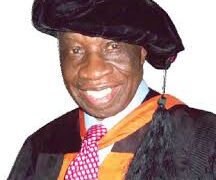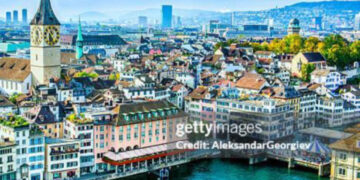North Korea, officially known as the Democratic People’s Republic of Korea (DPRK), is one of the most secretive and authoritarian countries in the world. The government, led by the Kim family dynasty for decades, exerts extreme control over nearly every aspect of its citizens’ lives. The regime’s strict laws, many of which are unknown to the outside world, reveal the extent of this control and the lack of personal freedoms within the country. Below are 21 shocking laws in North Korea that offer a glimpse into life under this repressive regime.
1. Mandatory Display of Leaders’ Portraits
Every household in North Korea is required by law to display portraits of the country’s past leaders, Kim Il-sung and Kim Jong-il, in a prominent position. These portraits must be kept spotless, and failure to maintain them in perfect condition can lead to severe punishment. Inspectors frequently visit homes to ensure the portraits are properly cared for, and even accidental damage to these images can be interpreted as an act of disrespect toward the regime.
2. Restricted Travel
Travel within North Korea is heavily restricted, and citizens need government permission to move between regions. Leaving the country without approval is strictly prohibited and considered treasonous. Any attempt to flee the country, especially to defect to South Korea or another country, can result in severe punishment, including imprisonment, forced labor, or even execution. Family members of defectors often face retaliation from the regime.
3. Approved Haircuts Only
In an effort to control expressions of individuality, North Korea has a list of state-approved hairstyles for both men and women. Men can choose from one of ten official haircuts, while women have a few more options depending on their marital status. Hairstyles considered too Western or unconventional, such as long hair for men or dyed hair, are banned. Violating this rule can result in public shaming or punishment.
4. Three Generations of Punishment
North Korea enforces a particularly harsh punishment system known as “guilt by association” or “three generations of punishment.” If one person is convicted of a serious crime, such as defection or speaking against the government, their entire family—including parents, children, and grandchildren—can be punished as well. This system is intended to deter dissent and prevent people from rebelling against the regime.
5. No Internet Access
Most North Korean citizens have no access to the global internet. Instead, the government controls a limited intranet, which is filled with state propaganda. Only a small elite class, typically those in the upper echelons of government or with ties to foreign countries, can access the global internet. Anyone caught trying to access information from outside the country faces severe consequences, as the regime views foreign information as a threat to its control over the population.
6. Banning of Foreign Music and Films
Listening to foreign music, particularly from South Korea or the West, is considered a serious crime in North Korea. The same goes for watching foreign films or TV shows. The regime views foreign entertainment as dangerous propaganda that could influence citizens’ loyalty to the state. Those caught with foreign music or media face punishment, including imprisonment or even execution in extreme cases.
7. No Religious Freedom
North Korea does not allow the practice of religion, as the regime’s ideology of Juche (self-reliance) takes precedence over any other belief system. Christianity, in particular, is seen as a threat. Owning a Bible or participating in religious gatherings is illegal, and those who are caught practicing religion are often sent to labor camps or executed. The regime promotes a personality cult around its leaders, treating them as quasi-religious figures.
8. One-Candidate Elections
While North Korea holds elections, there is no real choice. Elections feature only one candidate per office, and voting is mandatory. The process serves as a tool to display the regime’s supposed legitimacy and unity, but in reality, it is a farce. Citizens are expected to vote for the candidate put forth by the ruling Workers’ Party of Korea, and not doing so is considered an act of treason.
9. Censorship of Foreign News
North Korean citizens are not allowed access to foreign news sources. All media, including newspapers, television, and radio, is controlled by the state, and only propaganda glorifying the regime and its leaders is permitted. Citizens caught trying to access foreign news, either through smuggled devices or illegal broadcasts, are severely punished. The regime works tirelessly to maintain an information blackout, ensuring its people are isolated from global perspectives.
10. No International Phone Calls
Making international phone calls without government authorization is illegal in North Korea. Citizens found contacting individuals outside the country can face harsh punishments, as the regime sees such communications as a threat to its control. Telecommunication is closely monitored, and unauthorized use of foreign phones or SIM cards can lead to severe consequences.
11. Compulsory Military Service
North Korea has mandatory military service for both men and women. Men are required to serve for 10 years, and women must serve for seven years. The regime’s focus on maintaining a strong military presence reflects its long-standing tensions with South Korea and the United States. Military service is one of the many ways the regime instills loyalty and control over its citizens from a young age.
12. No Blue Jeans
Blue jeans, a symbol of Western culture, are banned in North Korea. The regime views Western fashion as a threat to its ideological purity and does not permit citizens to wear blue denim. This ban is part of a broader effort to prevent the influence of Western culture from infiltrating North Korean society.
13. Enforced Loyalty to the State
Citizens are required to participate in state-sponsored loyalty demonstrations and festivals, which celebrate the regime and its leaders. These events, such as the annual “Day of the Sun” honoring Kim Il-sung’s birthday, are mandatory, and not participating can lead to suspicion of disloyalty. The regime uses these gatherings to promote national unity and reinforce the personality cult around the Kim family.
14. Banned Birthdays
North Koreans are not allowed to celebrate their birthdays on certain dates, specifically July 8 and December 17, which mark the death anniversaries of Kim Il-sung and Kim Jong-il, respectively. On these days, the country is expected to mourn the passing of the former leaders, and celebrating a personal occasion is considered disrespectful.
15. Government-Controlled Education
The education system in North Korea is entirely controlled by the state, with a heavy emphasis on indoctrinating students with the regime’s ideology. From a young age, children are taught to revere the Kim family and adopt the principles of Juche. Critical thinking and access to independent sources of information are discouraged, and the curriculum is designed to maintain loyalty to the regime.
16. Strict Restrictions on Leaving the Country
North Korean citizens are not allowed to leave the country without explicit permission from the government, which is rarely granted. Defections are considered acts of treason, and those caught trying to flee are subject to harsh punishments, including execution. Many North Koreans who manage to escape the country do so through dangerous routes via China, often with the help of human traffickers.
17. Prohibition Against Criticizing the Regime
Any criticism of the North Korean government or its leaders is considered treasonous. Even a slight remark against the regime can lead to imprisonment or worse. The regime’s surveillance network is extensive, and citizens are encouraged to report any suspicious behavior, making it nearly impossible for people to express dissent without fear of retribution.
18. No Independent Media
All media in North Korea is state-controlled, ensuring that only government-approved news and entertainment reach the public. Independent journalism does not exist, and any attempt to create or distribute non-sanctioned content is strictly prohibited. This allows the regime to tightly control the narrative and maintain a firm grip on the population.
19. Western Fashion is Forbidden
In addition to banning blue jeans, other forms of Western fashion, such as bikinis, high heels, and branded apparel, are often restricted or outright banned. The regime views Western fashion as a form of ideological subversion, and citizens are expected to adhere to conservative and traditional styles of dress.
20. No Freedom of Assembly
North Korean citizens are not allowed to gather in groups unless it is for state-approved purposes. Public demonstrations or assemblies that are not orchestrated by the government are illegal, and any attempt to organize independent gatherings is swiftly crushed by the authorities. This is another tool the regime uses to prevent dissent and maintain control.
21. Possession of Bibles is Illegal
Christianity and other religions are heavily persecuted in North Korea. Owning a Bible or participating in Christian worship is considered a serious crime. Those caught practicing religion face imprisonment, forced labor, or execution. The regime views religion as a direct threat to its control and has cracked down on any form of religious expression.
Conclusion
The strict and oppressive laws of North Korea reveal the regime’s deep desire to maintain absolute control over its population. From restricting personal freedoms like travel and religious expression to enforcing loyalty through education and public demonstrations, the regime leaves little room for individual autonomy. While many of these laws seem shocking to outsiders, they are part of daily life for North Koreans, who have little choice but to comply with the repressive system

























































